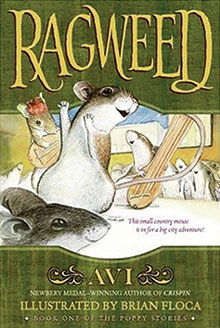 Consider: what is the purpose of a book review? Is it simply to register a reader’s subjective response? Is it to evaluate the writing within the broader context of literature? Or is it the reviewer’s task to determine what the writer wanted to achieve, and evaluate if those goals have been achieved?
Consider: what is the purpose of a book review? Is it simply to register a reader’s subjective response? Is it to evaluate the writing within the broader context of literature? Or is it the reviewer’s task to determine what the writer wanted to achieve, and evaluate if those goals have been achieved?
Are reviews meant to monitor writing for other readers? For the most part, reviewers of books for children are not children.
A good review doesn’t just make the author feel good about his/her work, it gives the writer confidence that their own judgement about their writing is justified.
Similarly, a dismissive review, or a personally negative review doesn’t just make the author feel bad, it undermines their self-confidence (see above).
(Consider—whatever your profession or job might be—how, at the end of a year’s work—or two—if you received a one-paragraph negative, dismissive evaluation of your work. How would you feel?)
A good review can surely increase interest in the work, and lead to greater sales. A cluster of good reviews can bring attention to that work and lead to awards and recognition.
A bad review can choke off all of those things.
A well written critical review can teach the writer something—something the author can absorb and use. In the same way even praise for aspects of the writing can teach the writer what he/she is doing that resonates with readers.
What I have learned is that if a variety of reviews all say the same thing (negatively or positively) it probably is an accurate evaluation.
 When my Ragweed (book one in the Poppy series) was published a number of years ago, it received good reviews but there was criticism for its use of excessive slang. I decided that was valid. So, recently, when my publisher told me they were going to reissue the book, I asked if I could rewrite it. They said yes. I was able to go through the book and cut much of that annoying slang. That doesn’t happen very often but I was delighted that I could do so. Thanks to the criticism, Ragweed is now a better book.
When my Ragweed (book one in the Poppy series) was published a number of years ago, it received good reviews but there was criticism for its use of excessive slang. I decided that was valid. So, recently, when my publisher told me they were going to reissue the book, I asked if I could rewrite it. They said yes. I was able to go through the book and cut much of that annoying slang. That doesn’t happen very often but I was delighted that I could do so. Thanks to the criticism, Ragweed is now a better book.
There is a skill in writing reviews just as there is a skill needed for any kind of writing. There are well written reviews and poorly written ones. Should readers of reviews note that? Should review writing be taught? Should criticism be reviewed? From what I have observed, critics get very defensive if their criticism is criticized.
When all is said and done the most important critic of an author is the author. Self-criticism is a constant and vital component of any writing.
Does anyone want to review what I have said here? Feel free to criticize.
2 thoughts on “Thoughts on Book Reviews”
I appreciate your words! I think constructive feedback is always welcome. If critique becomes criticism, without opportunity to revise, it’s not generally productive.
I honestly don’t think reviews are for the writers. They’re by readers for other readers. As a reader, I use them to gauge if I might want to begin reading a book. As a writer, I try not to read them. 😉